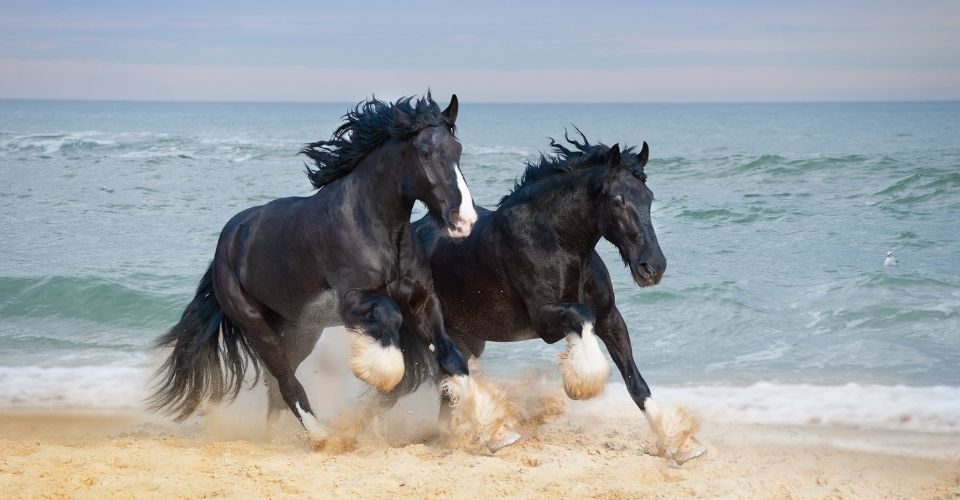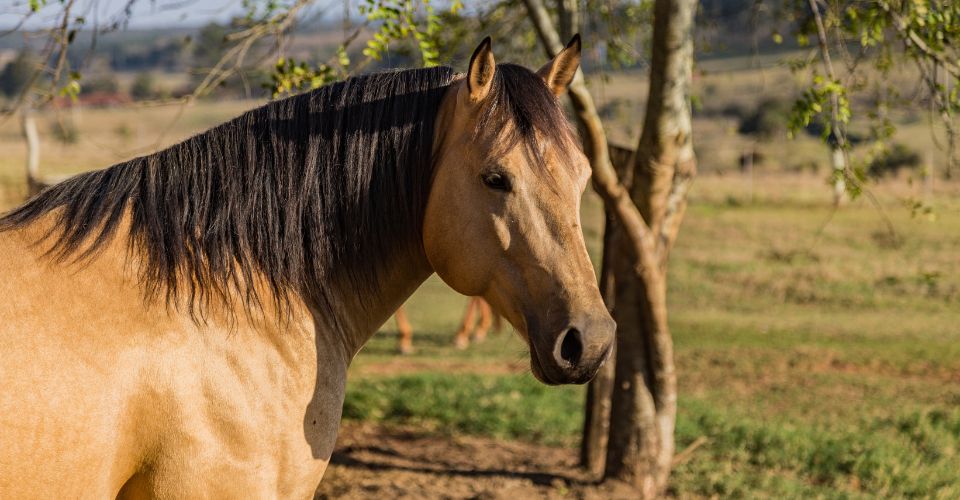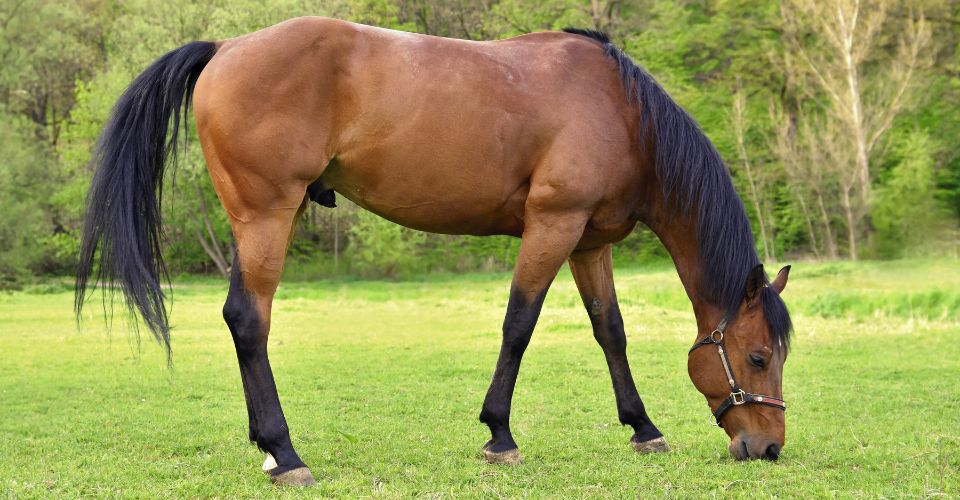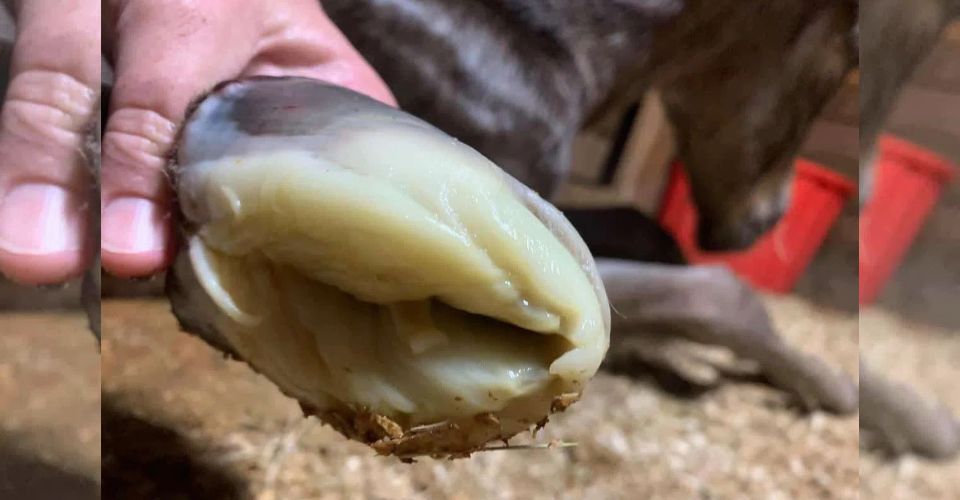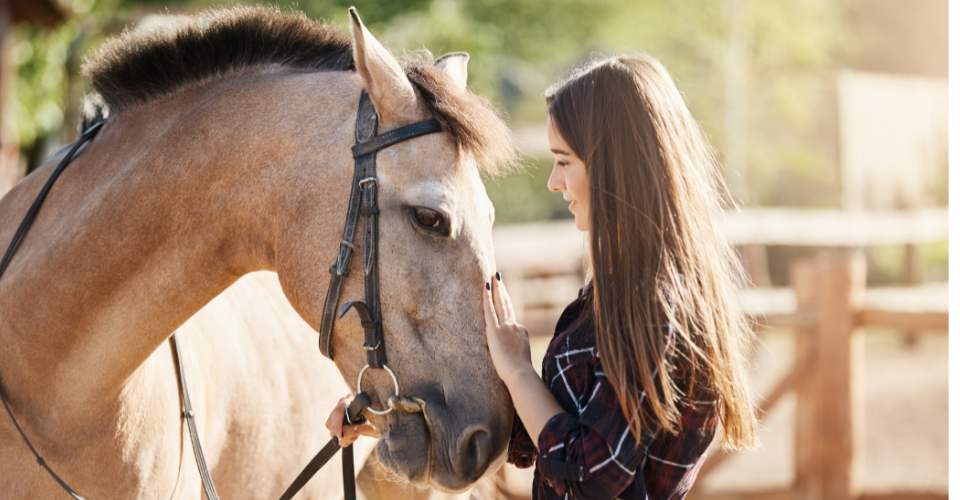Horses are popular for their graceful and majestic personalities. Owning a horse is considered a rewarding experience, and people who own a horse know how much fun it is to spend time with them. Like any other animal, a horse also uses its voice to communicate. They can use their voice to communicate with their owners or with other horses.
So, what does your horse want to say when it makes certain sounds? What does a horse sound mean, and how to differentiate between different types of sounds?
We will be describing 8 common types of horse sound and explain what each of them means. So, let’s get to better understand what your horse is trying to communicate with you.
1. The Neigh/Whinny
The neighing horse sound is more like a high-pitched scream that softens towards the end. This sound is usually 1.5 seconds long and can be heard from a distance of at least a mile.
A horse makes this neighing sound when it needs attention or wants company. A neigh also means a horse is excited to see another horse or their human companion. Another reason for a horse to neigh is to pacify its separation anxiety when it separates from a fellow horse or a favorite human.
Horse Neighing/Whinnying:
2. The Snort
A snort communicates happiness and contentment from an equine. This horse’s sound tells other horses and the human companion that the horse is happy and calm. A snort is also accompanied by a swishing tail and a calm face. Snorting can result from greeting other horses, getting a favorite treat, or when a horse is being groomed.
Horse Snorting:
3. The Squeal
The next horse sound we are going to discuss is a squealing sound. But this sound always points towards something negative. When a horse squeals, it may mean one of the three things.;
1) there is a chance of a dispute or violence between the horses.
2) a horse may squeal when it encounters a new horse.
3) when a female horse rejects the advances of a male horse, she will squeal.
A squeal can be heard from as far as 100 feet and lasts for 1 to 1.7 seconds. The squeal almost always means there is some danger or an unwanted situation that makes a horse angry and anxious.
Horse Squealing:
4. The Sigh
Horses sigh as a sign to show they are relaxed and comfortable. Mostly, a horse will sigh when it is around humans. They also make a sighing horse sound when they are being groomed, petted, or given a massage. Being close to another horse also makes a horse sigh. Their sigh resembles the human sigh—it starts with a deep breath inhaled, then slowly exhaled out through mouth and nose. Some horses do not sigh, and it is perfectly normal for them to not do so even when they feel relaxed and calm.
Sighing Horse Sound:
5. The Groan
Horses groan to express the feelings of discomfort, pain, or boredom. When a horse groans, it may mean it is in pain or something is physically bothering it and making it uncomfortable. Another reason behind a horse groaning can be a lack of activity and boredom. A horse that has been stuck in stalls may groan to let you know it is bored and wants to go out.
This horse sound comes out from the deeper parts of a horse’s gut and is lower in tone. When a horse groans, it does so with a closed mouth and vibrating nostrils.
Groaning of a Horse:
6. The Scream
This screaming is more common in wild horses. They scream whenever they encounter rival horses or get into a fight with one. A domestic horse doesn’t scream because it is being protected and doesn’t get exposed to harsh elements such as other horses or predators. The only reason a domesticated horse will scream is whenever it is in a lot of physical pain.
Screaming Horse Sound:
7. The Nicker of a Horse
When a horse nickers, it means the horse is excited or happy. This horse sound is used for various reasons, such as when a mother horse expresses its affection towards its child, when a stallion approaches a mare for mating, or when a horse is hungry and sees food. If you are lucky, your house may also nicker when it sees you. It is their way of showing love and affection towards their human companion.
A nickering is a low-pitched sound that comes from a horse’s gut. This sound can be heard from a distance of at least 30 yards. When a horse nickers, it closes its mouth, and its nostrils will move while its ears are pointing upwards to pay attention.
Nickering:
8. Roaring Horse Sound
Yes, horses roar too, and they make this sound whenever they are angry, afraid, in pain, or confused. A horse will also roar when it is engaged in a fight with other horses. It is uncommon for a domestic horse to roar much because it is usually protected from other horses.
A horse may also roar because of a condition called Laryngeal Hemiplegia—which occurs when a nerve is damaged in a horse’s throat. Although it seems like a very painful problem, it is not much of a concern for domestic horses. The running or racing horses need to be operated for this condition so they can breathe easily when they are running.
Roaring Sound:
Final Thoughts
Horses have a quiet, gentle, and calm demeanor. They usually don’t make much noise, so when they do, it means they want to communicate or are signaling something unusual. To handle your horses with care and to treat them better, it is important that you learn all about their communication.
So, we hope our article would have helped you learn all about the common horse sounds and what they mean.
As an important reminder, no matter which breed of horse you have, it should be given proper care, time, and attention. This way, you can have a strong, majestic, and gentle companion who will be around for more than 25 years.

